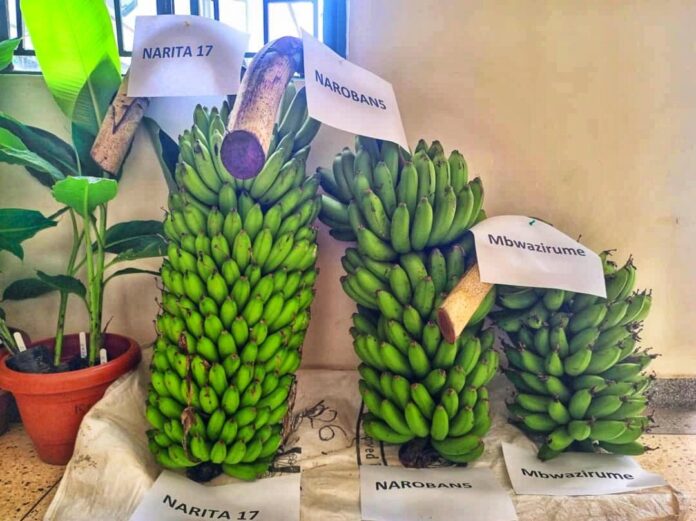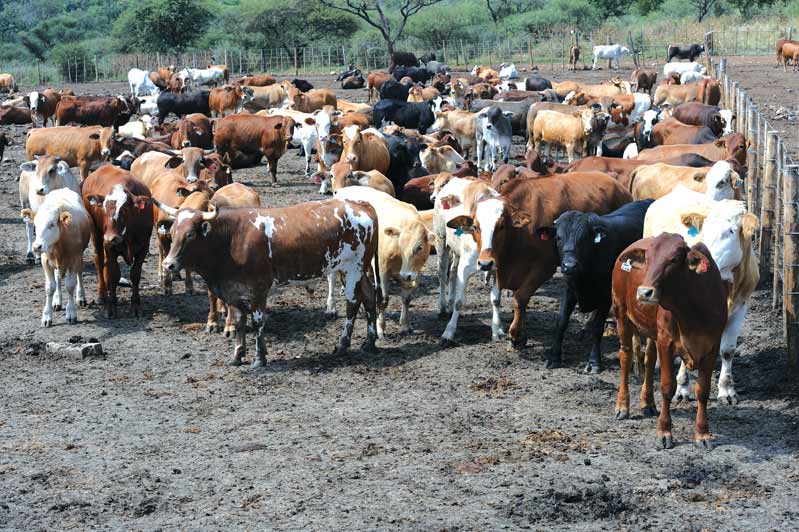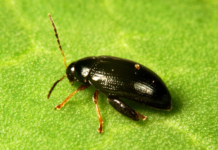In a significant advancement for Ugandan agriculture, the Ministry of Agriculture, Animal Industry and Fisheries (MAAIF) has officially released NARITA 17 (NAROBAN6), a new Matooke banana variety developed collaboratively by the International Institute of Tropical Agriculture (IITA) and the National Agricultural Research Organisation (NARO).
This innovative hybrid promises to revolutionize banana farming in the region with its remarkable attributes.
Unprecedented Yield and Disease Resistance
NARITA 17 boasts a yield increase of 243% over the traditional ‘Mbwazirume’ variety, offering farmers substantially higher productivity. Beyond its impressive yield, this triploid hybrid exhibits strong resistance to prevalent banana diseases, including black leaf streak, a common challenge in banana cultivation. These traits are expected to enhance food security and increase income for banana farmers across Uganda.
Breeding Excellence
The development of NARITA 17 involved strategic breeding techniques. Researchers crossed the triploid East African Highland banana cultivar ‘Entukura’ with the wild diploid ‘Calcutta 4’ to produce a disease-resistant tetraploid. This tetraploid was then crossed with an improved diploid to yield NARITA 17. This method effectively combines desirable traits from both wild and cultivated varieties, resulting in a banana that is both high-yielding and resilient.

Agronomic Performance
Field evaluations in Uganda have demonstrated NARITA 17’s superior agronomic performance. The hybrid produces an average bunch weight of 25 kilograms, with approximately 189 fingers per bunch. Its robust growth is complemented by a plant height of about 312 centimeters at flowering, and it maintains a significant number of functional leaves, indicating good resistance to foliar diseases.
Implications for Farmers
The introduction of NARITA 17 is poised to transform the livelihoods of banana farmers in Uganda. The variety’s high yield and disease resistance reduce the need for frequent replanting and intensive disease management, leading to lower production costs and higher profitability. Additionally, its adaptability to local growing conditions ensures that farmers can achieve consistent and sustainable production.
A Step Forward in Agricultural Innovation
The release of NARITA 17 underscores the success of collaborative agricultural research in addressing food security challenges. By integrating traditional knowledge with modern breeding techniques, IITA and NARO have developed a banana variety that meets the needs of both farmers and consumers. This achievement represents a significant milestone in the ongoing efforts to enhance agricultural productivity and resilience in Uganda.








